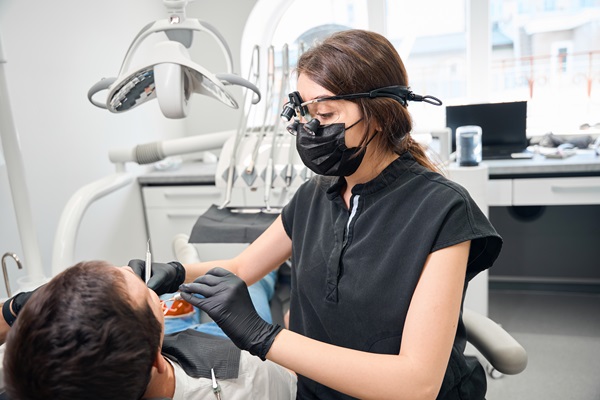Oral Pathology 101: Identifying Early Signs of Mouth Diseases

Oral pathology is the study and diagnosis of diseases that affect the mouth, jaw, and surrounding structures. Recognizing early signs of oral diseases is essential, as many conditions can progress if left untreated, impacting not only oral health but also overall health. For patients and healthcare providers alike, understanding the basics of oral pathology can aid in identifying abnormalities and seeking timely intervention. Here are some key signs and symptoms of common mouth diseases to watch out for.
Mouth sores or ulcers
According to the Oral Health Foundation, mouth ulcers that do not disappear within two weeks are a reason to consult an oral pathology specialist, like an oral surgeon. While most mouth ulcers result from minor injuries or irritation, persistent sores can be a sign of oral cancer or other serious conditions like herpes simplex virus infection. Regular observation of any sore, particularly if it appears white, red/speckled, and does not improve, is crucial for early detection.
Discolored patches
The appearance of white (leukoplakia) or red (erythroplakia) patches in the mouth is a key indicator of abnormal tissue changes. White patches are usually painless and may go unnoticed, while red patches are often more concerning due to their association with a higher risk of malignancy. Note these patches are considered more alarming when the patient or a dental professional cannot scrape them off with a dental tool. According to the American Cancer Society, these patches can lead to a pre-cancerous condition called dysplasia or oral cancer itself.
Lumps or swelling
When one becomes sick, they can experience swelling in the throat, which usually means swollen lymph nodes and thyroid. However, as the sickness runs its course and exits the body, the swelling returns to normal size. When swelling fails to dissipate and couple with thick areas in the mouth and cheeks, this may indicate various conditions, including benign cysts, infections, or even tumors. Often, these lumps are painless at first, which is why many people may overlook them. However, any swelling or unusual mass that persists warrants an oral pathology examination to rule out serious conditions, such as oral cancer or salivary gland disorders.
Difficulty with performing normal oral function
Normal oral function pertains to chewing, swallowing, and speaking. Difficulty performing any of these tasks is not normal and often indicates underlying issues within the mouth or throat. Such difficulties may result from inflammation, infection, injury, or abnormal growth. Persistent issues with oral function can significantly impact a person's quality of life and signal a need for further investigation.
Chronic bad breath or unusual taste
It is normal to have the occasional case of bad breath, such as when one first wakes up or consumes food with an odor, like onions or garlic. However, the smell should dissipate after performing appropriate oral hygiene techniques. Persistent cases that do not go away after brushing and flossing or return fairly quickly after performing these techniques may signal an infection or disease. Conditions like periodontal disease, halitosis, and even some cancers can lead to these symptoms.
Check-in on your oral health
None of the above signs are normal to experience. Whether you are experiencing one or multiple, it is a sign of a far deeper issue that must be promptly addressed. For an in-depth evaluation, diagnosis, and treatment, contact Premier Oral Surgery & Implantology Center today.
Request an appointment here: https://stratford.premieroralsurgeryct.com or call Premier Oral Surgery & Implantology Center at (203) 760-0190 for an appointment in our Stratford office.
Check out what others are saying about our services on Yelp: Oral Pathology in Stratford, CT.
Related Posts
An apicoectomy helps save a tooth when root canal treatment alone cannot resolve infection, and many patients wonder how long it takes to heal after an apicoectomy. Clear expectations about recovery reduce anxiety and support better outcomes. An endodontist reviews the procedure, provides aftercare instructions, and tailors the plan to each patient so the tooth,…
A single tooth implant can replace a natural tooth with a titanium rod and an artificial crown. It is custom-fit to fill the dental space after losing a tooth. Knowing more about this dental replacement can help you prepare for your next visit. Here are the details on how a single tooth implant can enhance…
A sinus lift procedure goes by many other names, including sinus elevation, sinus augmentation, and sinus graft. It can be an important step in the process of having a dental implant placed in the upper jaw to replace a missing tooth. The procedure involves raising the floor of one of the maxillary sinuses and filling…
A sedation dentist can provide essential support for patients undergoing oral surgery. These dental professionals prioritize patient comfort by reducing fear associated with dental treatment and making complex procedures safer and more tolerable. The use of sedation dentistry has become increasingly common as more individuals look for ways to minimize discomfort and stress during oral…
